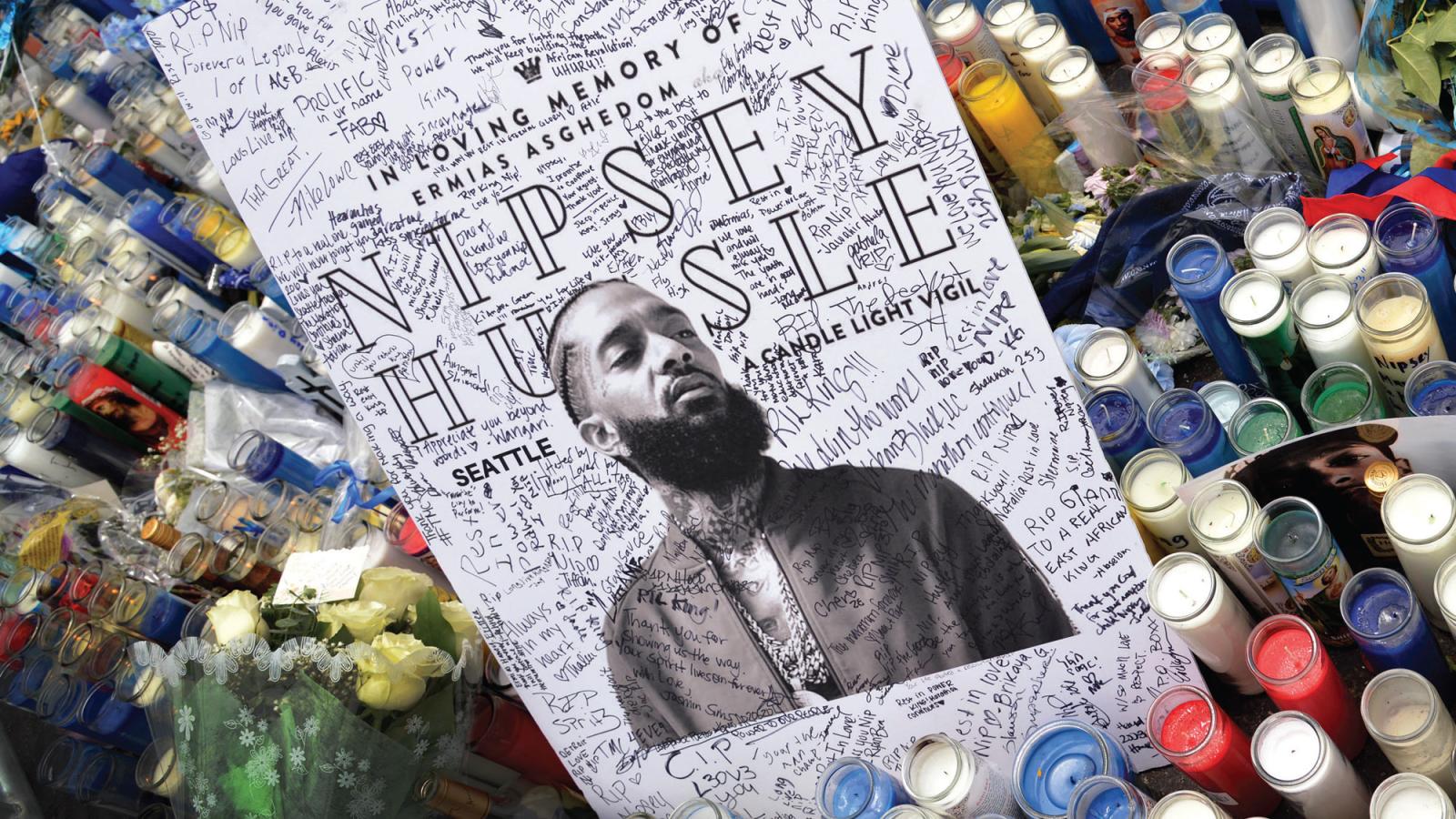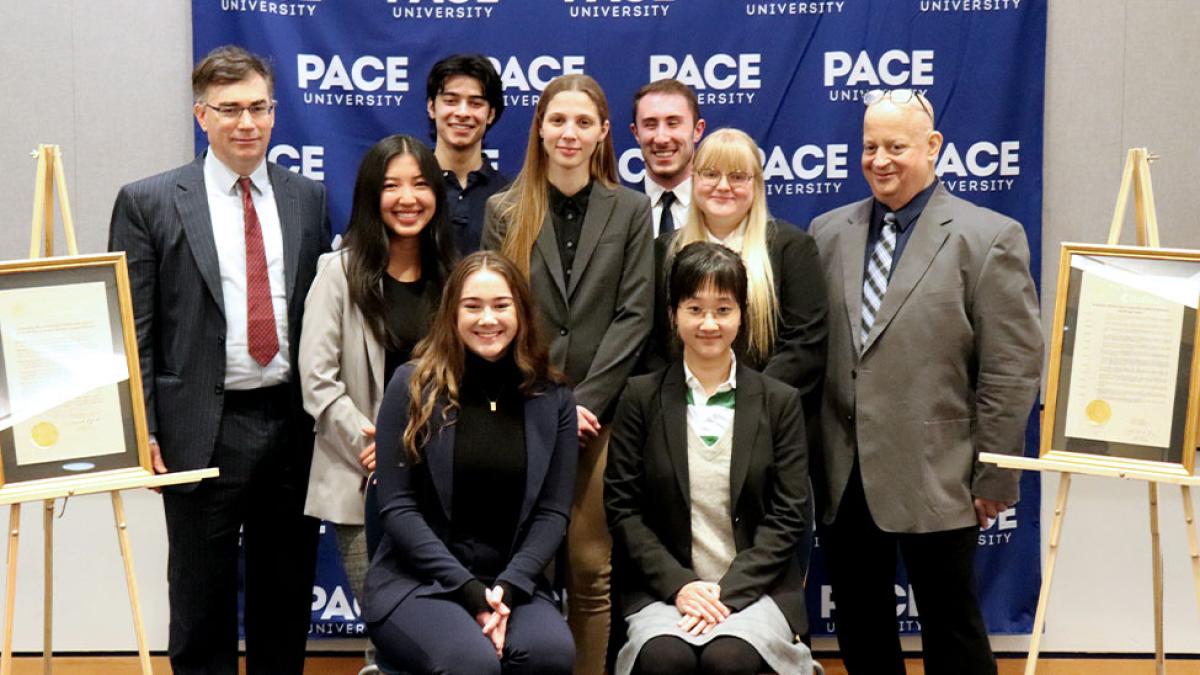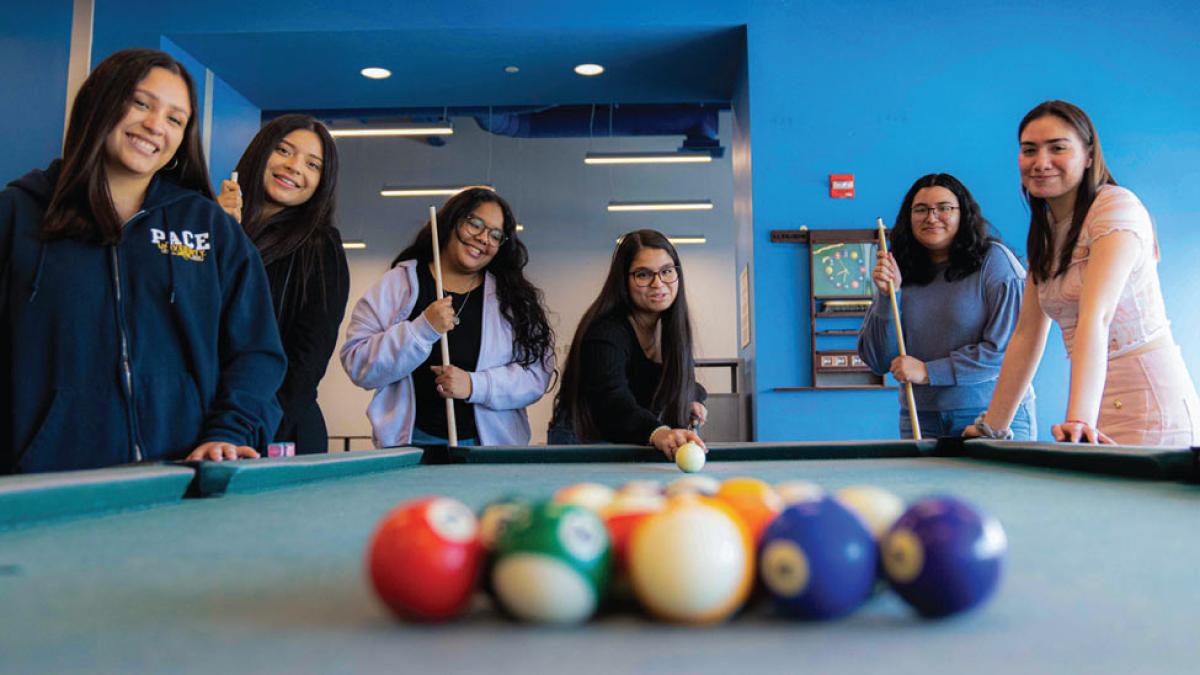We're reaffirming our commitment to cutting-edge academics, moving up in the rankings, earning grants, and paying it forward. All this and more in the latest edition of 10 Things to Inspire You.
The Song As Struggle

“Hip hop, in a lot of ways, is a manifestation of pain,” says Justin Winley, a 2021 graduate who majored in Film and Screen Studies. “It’s a manifestation of the struggle, whether that be the day-to-day economic struggle of living in an impoverished community or the struggle against ‘The Man.’”
Winley, working together with Assistant Professor of Communication Studies Melvin Williams, PhD, and independent researcher Justin Causey, used that insight as the basis for an innovative academic research project exploring the role of hip hop music in conveying grief, generational pain, and other emotions that might otherwise go unexpressed among Black men. Their researched was published this past winter in the peer-reviewed Journal of Hip Hop Studies.
Listen While You Read:
Hit play to listen to our Spotify playlist of songs examined by Williams and Winley.
As part of the research team, Winley and Williams conducted an investigation, framed by critical race theory and gender role conflicts, of twenty-six rap tribute songs written by twenty-eight Black male artists in the aftermath of the killing of rapper, entrepreneur, and activist Nipsey Hussle.
“We used this hip hop cultural moment— the death of Nipsey Hussle—to raise larger conversation about this epidemic of gun violence and its devastation of not only the Black community, but Black men specifically,” says Williams, whose areas of research focus on Black representation in pop culture, queer studies, and media.
Hussle, the stage name of Ermias Asghedom, was a Grammy-nominated West Coast rapper who was fatally shot outside his Marathon Clothing store in Los Angeles in 2018. A community leader who was an advocate for STEM education and worked to curb gun violence, he was 33 years old when he died. Following his death, more than 50 murals dedicated to his memory appeared in LA, book clubs popped up that focused on works he had referenced in interviews and in his lyrics, and dozens of tribute songs were produced by other rappers.
“We used this hip hop cultural moment— the death of Nipsey Hussle—to raise larger conversation about this epidemic of gun violence and its devastation of not only the Black community, but Black men specifically,” says Williams.
The concept of tribute songs is nothing new to the hip hop community—in fact, in 1997, following the murder of Christopher “The Notorious B.I.G.” Wallace, artists Sean “Diddy” Combs and Wallace’s widow, Faith Evans, released “I’ll Be Missing You.” A few others to mull over include Jay-Z’s “The City is Mine,” Bone Thugs-N-Harmony’s “Tha Crossroads,” and 2Pac’s “Life Goes On.”
“We really wanted to examine how Black male rappers were using these rap tribute songs to commemorate the grief of being a homicide survivor,” says Williams. “In so doing, we start a larger conversation about how the Black community grieves, how Black men grieve, and how they communicate these narratives which are so vital to the grieving process.”
In Williams and Winley’s research partnership, the pair began analyzing nearly 30 tribute songs, each one memorializing the life and legacy of Nipsey Hussle.
They identified common themes in the tribute songs about survivorship, about anger, and about the desire to seek vengeance. They saw that Black male rap artists use the rhetorical power of rap tribute songs to engage with their complex bereavement processes, advance vital counternarratives, and offer rich criticisms of gun violence, internalized racism, poverty, and systemic oppression. They also found that artists use these songs to explore Black men’s mental health experiences in the face of repeated exposure to violence, death, and homicide.
“When we see examples of gun violence, particularly in the Black community, it’s always a very charged conversation,” says Winley. “What’s great about being able to do this research is that it takes those emotions into account, but it doesn’t let them rule the discourse.”
Photo by Chelsea Guglielmino/Getty Images
More from Pace Magazine
With the help of a nearly $2M federal grant, this inaugural cohort of nursing students is poised to change the face of patient care.
Pace's Producing the Documentary course gives students a hands-on experience in filmmaking—from pre-production, to shooting on location, editing, and so much more. Read how student Adam Ng got his feet wet (literally) this semester while filming the latest Pace Doc.


